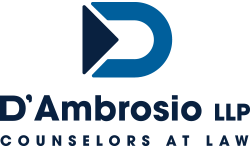“Vaccine passports,” a phrase is generally given to describe a process by which individuals can prove, electronically or otherwise, that they have been vaccinated against COVID-19 is increasingly a subject of debate as businesses reopen after a difficult year-plus of suffering under pandemic conditions. Universities such as Brown, Cornell, Northeastern, and Rutgers are requiring students to be vaccinated prior to commencing in-person studies for the Fall 2021 semester. Concert and sporting venues are considering similar provisions prior to entry. In an effort to bolster public confidence that it is safe to return to pre-pandemic activities, many businesses are considering requiring customers to show proof of vaccination. The question arises, can they legally do that? The legal consensus is generally, yes.
The White House has indicated that the Federal Government will make no mandate requiring citizens to carry a vaccination credential nor will the federal government create a central vaccination database. States, however, are addressing the question differently. For example, Governor Ron DeSantis of Florida issued an executive order precluding a state agency or any company that receives state funds from making entry conditional upon proof of vaccination. Whereas, the State of New York has created “Excelsior Pass” as a method for verifying vaccination status or a negative COVID-19 test for a participating business.
Private business is generally at liberty to serve customers as they see fit as they are free from the Constitutional 14th Amendment equal protection requirements afforded citizens against government action. However, public accommodation businesses, such as restaurants, theaters, hotels, etc. are subject to the Civil Rights Act of 1964, 42 U.S.C.A. §2000a, ideally preventing discrimination based upon race, color, religion, sex, or national origin. Some will argue that their religious beliefs are in conflict with vaccine requirements. Additionally, businesses are required to act in accordance with the Americans with Disabilities Act of 1990, 42 U.S.C.A. § 12132, which will likely require accommodations for disabled individuals who are unable to take the COVID-19 vaccine for medical reasons.
However, long-held legal precedent does allow a community, “the right to protect itself against an epidemic of disease which threatens the safety of its members.” See Jacobson v. Massachusetts, 197 U.S. 11, 27 (1905) (upholding the constitutionality of the Commonwealth of Massachusetts enforcing mandated vaccination against smallpox in the interest of public health and safety). Accordingly, absent federal intervention, state legislatures, and even local health boards are permitted to address the matter as they see fit if the government body believes such regulation is necessary to prevent the spread of disease. Id. With such leeway provided to local and state government in the face of Constitutional protection, private businesses, facing significantly less regulation, will likely have the discretion to limit service to only vaccinated customers.
It remains imperative however that if a business is seeking to require “vaccine passports” for customer entry, it first analyzes the laws and specific regulations that apply to its ordinary course of business.
Attorney Christopher Cridler
HOW CAN WE HELP?
Your team of lawyers at D’Ambrosio LLP are here to work with and for you, every step of the way.



